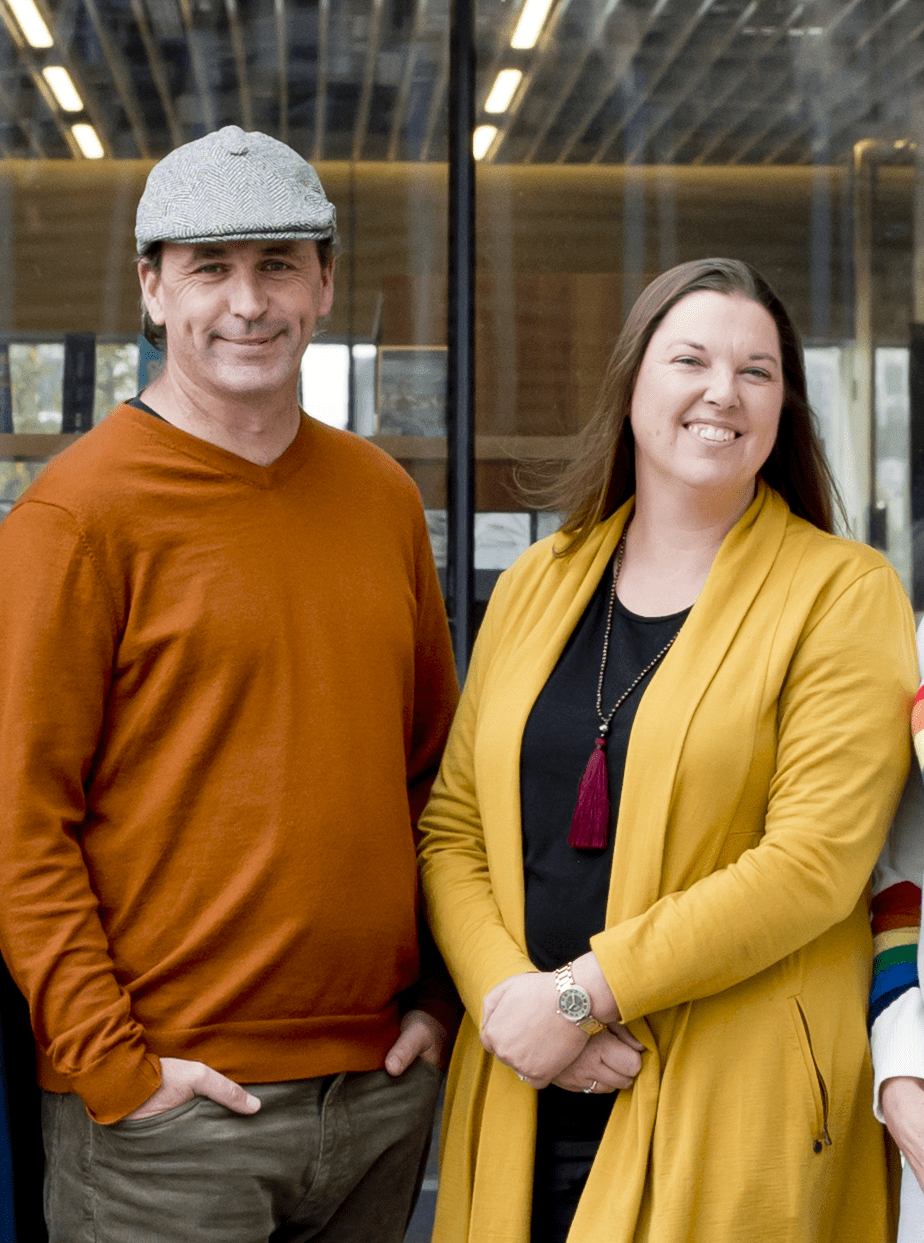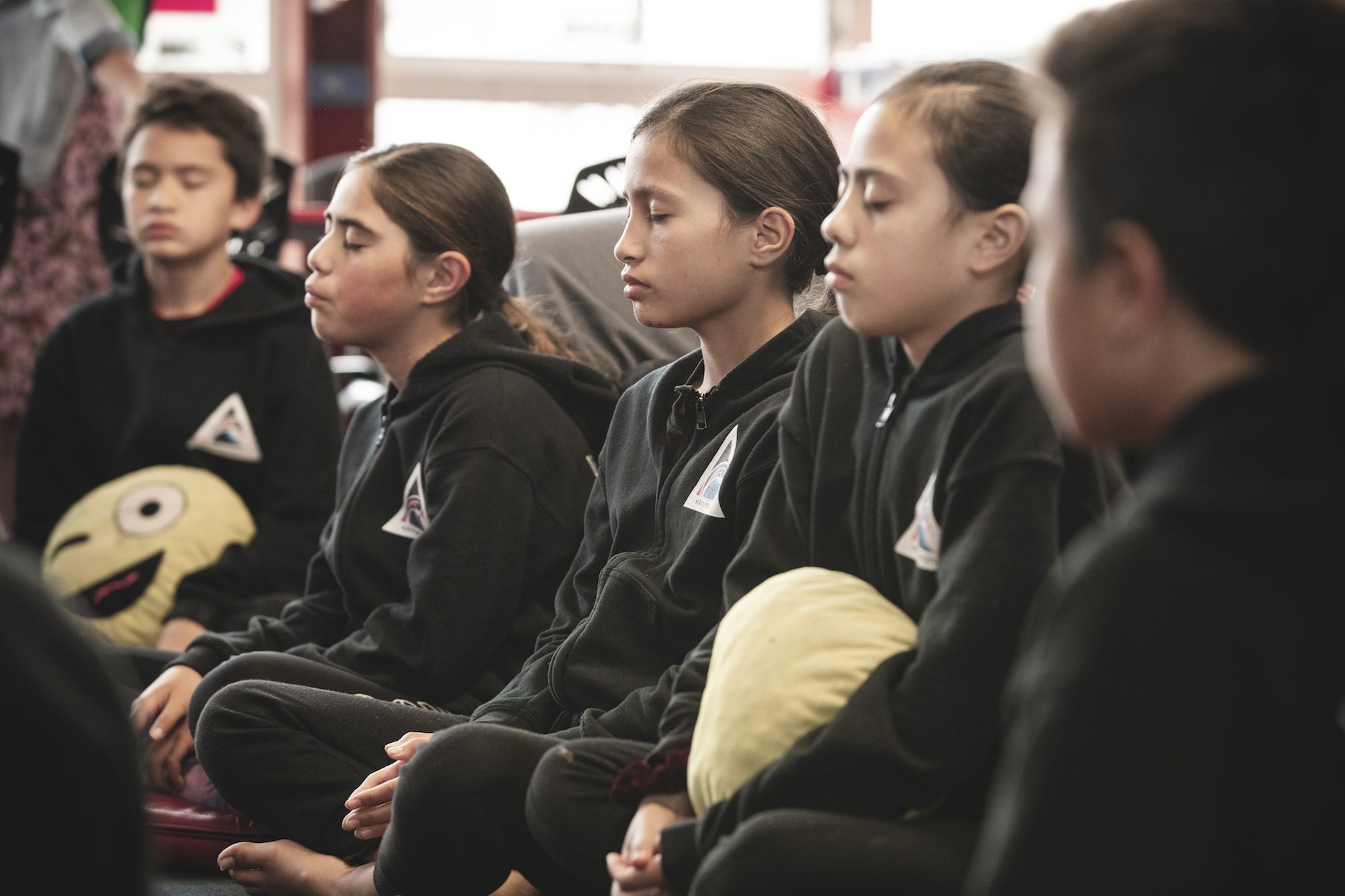For nearly 10 years, Natasha Rix, 46, and her husband Grant, 44, have been the leaders behind Pause Breathe Smile, a programme teaching mindfulness-based wellbeing skills to children aged 5-12.
They first met in 2001, on a 10-day mindfulness retreat that shaped their whole lives. “We spent our twenties intensively practising, studying and travelling to learn from some of the best mindfulness teachers in the world including training as teachers ourselves,” says Natasha.
“Then, after we married in 2007 and had our daughter Amelia, we converted our garage in Tauranga into a meditation space, and started teaching mindfulness to our community on a ‘by donation’ basis.”
At the time, Grant, who has a background in health promotion and psychology, was employed by the Mental Health Foundation of New Zealand where he began researching what was happening internationally in the space of education and mindfulness. Heartened by the positive results of implementing mindful practices in schools overseas, Grant was interested in developing a programme that aligned with the New Zealand curriculum for young children of primary and middle school age. In 2013, philanthropic funding was secured.
“Together, we developed the Pause Breathe Smile programme which integrates proven mindfulness techniques, the latest research and is contextualised by Sir Mason Durie’s model of holistic wellbeing Te Whare Tapa Wha,” says Natasha. “This translates as ‘The house with four walls’ and is widely used in New Zealand schools. It recognises that we have interconnected domains of wellbeing which all need to be supported to make a strong person, being the physical, emotional, mental, social and spiritual domains,” she adds.
While initially they trained external facilitators to go into schools and deliver the programme, that changed in 2016, when they took over the programme privately through their own business called the Mindfulness Education Group, training schoolteachers to directly implement the Pause Breathe Smile method in classrooms.

In 2020, they founded the Pause Breathe Smile Charitable Trust, and Southern Cross — New Zealand’s largest private healthcare organisation — came on board as the charity’s sponsor.
As a result, the programme has reached an additional 340 schools and trained about 7,000 more teachers, making mind- health skills available to almost 100,000 more kids in primary and intermediate schools across the whole of New Zealand.
Teachers are supported by online resources both in English and in te reo Maori, which they use to bring the mindfulness course to life in the classroom.
The Pause Breathe Smile initiative consists of eight lesson plans, taught over one school term, for one hour weekly and lessons are repeated and build on each other for consistent learning of skills, continued even after the school term ends, as children learn to practice mindfulness of their own accord.
“The goal is to help children regulate emotions, build self-awareness, and relate positively to others through mindful practices such as mindful breathing, eating, movement, practising gratitude and learning about kindness,” says Natasha.
One such practice is called ‘Straight Back Soft Belly’ which involves children either sitting comfortably or lying on their backs while being guided to soften their belly through the breath and observe the wandering mind while remaining focused on the breath. The aim is to feel alert, attentive, present and embrace self-acceptance. They are then asked to share a word that describes this experience which becomes part of the classroom wellbeing wall.
“The feedback from the teachers has been heart-warming,” says Natasha. “They’re surprised by how much the children enjoy these lessons, display less disruptive behaviour and negativity in class, including how calm and learning-ready they are before each lesson. What’s more, they’re taking these home and using them with their families.”
An independent 2022 online survey by Mindquip Ltd and the New Zealand Institute of Wellbeing and Resilience included responses from 95 schools at the one-year follow-up point. It found that the number of students flourishing had steadily increased by 8.1 per cent, positive behaviour in the classroom had increased by 12.4 per cent and general student wellbeing was up by 16.6 per cent — which resulted in an increased sense of students being more cheerful, self-motivated, hopeful, connected to their bodies and caring. They also displayed more perseverance, enthusiasm, contentment, and hope, and were less anxious, apprehensive, sad, disinterested and pessimistic.
Future goals include widening the reach of Pause Breathe Smile to youth and social workers engaging with children outside the classroom, creating an app for children and teachers to use, and an ongoing commitment to ensure the programme is culturally beneficial for Maori, following a successful pilot of the programme in a full immersion Maori school.







